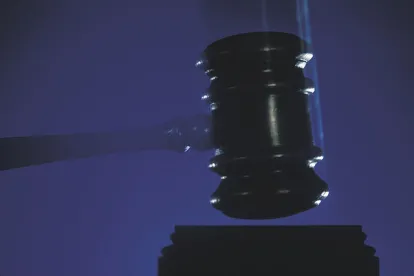The Defendant in Allcorn v. Bradley Creek Boatominium, Inc.sought an injunction against the Plaintiffs in the midst of a proxy fight as to their allegedly defamatory statements in connection with the election of the Defendant's board of directors. In an (unpublished) Order yesterday, Judge McGuire denied a Motion for a Temporary Restraining Order.
The Defendant operates a non-profit "recreational boating marina" in Wilmington, NC. The Plaintiffs, members of the Defendant and owners of boat slips at the marina (a boataminium) were involved in a disagreement with the existing board of directors of the Defendant.
Plaintiffs, exercising their statutory inspection rights, sought the current financial statements of the Defendant corporation and the minutes of its recent Board of Directors meetings (per G.S. §55A-16-04). Plaintiffs were entitled to this information "if [their] demand was made in good faith and for a proper purpose, (b) [they] describe[d] [the] purpose for which they seek the minutes 'with reasonable particularity,' and (c) the records are directly connected to the proper purpose." Order ¶12.
What are "proper purposes"? They include determining stock value, determining the financial condition of the corporation, or investigating the conduct of management. Order ¶12 A requesting member or shareholder enjoys a "presumption of good faith" in a request for corporate records, and the burden falls to the corporation to overcome the presumption. Order ¶12.
Although the corporation conceded the request for the board minutes was for a proper purpose, it disputed that the request had been made in good faith. Since the corporation was seeking ratification of previous actions of its board of directors at an upcoming meeting, and there therefore was a close relationship between the request and the upcoming board agenda, the Court found insufficient evidence to rebut the presumption of good faith and ordered the corporation to produce the requested records.
You are wondering by now how a temporary restraining order plays into this basic request for corporate records. The Defendant expressed concern on how the Plaintiffs might use the records that it was ordered to produce. It sought an injunction prohibiting the Plaintiffs from "engaging in or disseminating any defamatory or otherwise false, disparaging or misleading communications about [the corporation's] financial health and/or its Board of Directors, or management to any person or entity." Order ¶16.
After stating several times that a TRO was an "extraordinary measure" (Order ¶17), Judge McGuire denied the motion for a TRO. He said that even assuming that the Defendant had established a likelihood of success on any of its claims, it had not established that it would suffer irreparable harm if the TRO was not issued.
The Judge also pointed out the difficulty that the Court would have in monitoring and enforcing such an injunction:
Particularly significant in this case is that Defendant's requested relief would require the Court to restrain Plaintiffs' rights to communicate with the Marina's membership
immediately prior to a vigorously contested board of director's election. While the Court recognizes that genuinely defamatory speech does not have absolute constitutional protection, the relief requested by Defendant[] goes far beyond protecting it against defamatory statements or communications by Plaintiffs and, effectively, asks the Court to insert itself into Defendant's upcoming Board elections as a referee. Defendant is now requesting that the Court prohibit Plaintiffs from making "incomplete" and "misleading" communications, from "interpretation of the records produced" by Defendant, and from "harassing" Defendant's employees. Such a prohibition on Plaintiffs' conduct would be both overly broad and would not adequately apprise Plaintiffs of the conduct from which they were prohibited in engaging. In addition, as a practical matter, such an order would be nearly impossible to enforce.
Order ¶19.
Judge McGuire also noted that the Defendant's hands were not entirely clean in expressing its concern about false statements possibly being made in the upcoming election of the board of directors of the Defendant. He said that the Defendant had said in a newsletter to its members that the Plaintiffs' request for corporate records was improper, "despite the fact that North Carolina law clearly entitles Plaintiff[s] to this exact information upon request." Order ¶20.
They say that "he who seeks equity must do equity." It has also been said that the two happiest days of a man's life are when he buys a boat and when he sells it. The current members of the board of directors of the Defendant have undoubtedly had better days.




 />i
/>i
